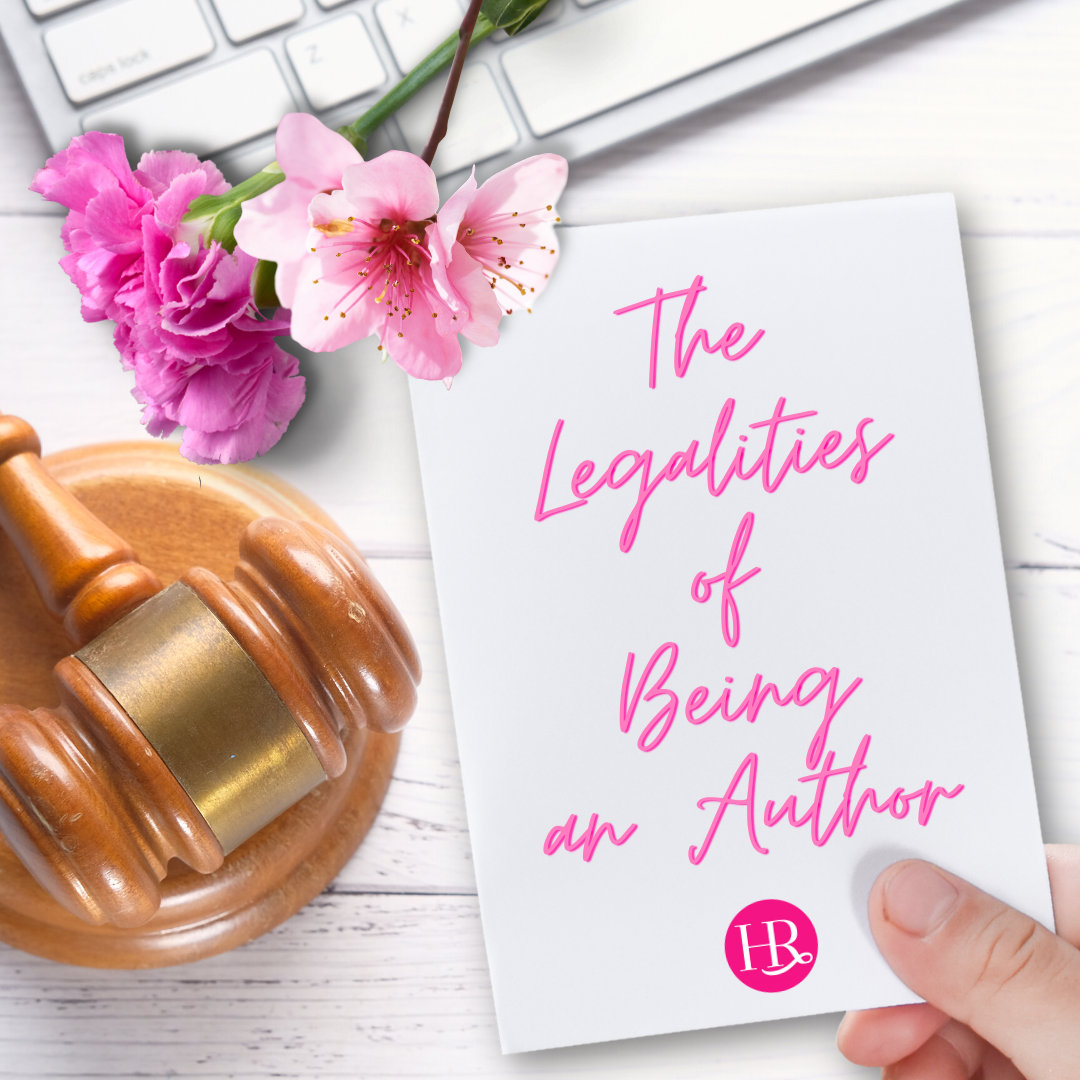The Legalities of Being an Author
Copyright and Legal Compliance
Note: This is, in no way, meant to be legal advice, but rather to bring your attention to the various considerations you should have as a business entity.
When you publish, you are entering the world of commercial social media. Your author pages are public and you are now selling a product (your book). This opens up a wide range of legalities to consider.
Copyright is a big one.
Any creative material that was not expressly generated by you should fall under your scrutiny when it comes to copyright. This incudes, fonts, pictures, sounds, music, prints, videos, quotes, and other people’s posts, to name a few. If you didn’t make it/shoot it/write it/produce it, check it.
Images and Social Media
Any time you share something from the (not all-inclusive) list above, without proper attribution, you are risking copyright infringement. This includes apps that have pre-set text options. If that text font is not free for commercial use, you could come under fire. For every app or program you use, it’s important to read the fine print. Find out where the images and fonts are coming from and whether or not you have permission to use them commercially.
Sharing Others’ Posts and Content
If you share a post that is generated by another user, using the share function, as long as it’s the original post that user wrote, (such as “reposting” on X/Twitter or Threads) it should be fine. However, if you take their photo and share it with your handle without permission, you could get yourself into hot water. For example, if a business uses a Shutterstock or Adobe stock image and they’ve paid for a single-user license, when you share that image as if it were yours and/or manipulate or change the image, and you haven’t paid for the license, you could face legal issues.
What about User Generated Content (UGC)? Even photographs taken by other friends and authors aren’t free of legalities. Technically, you didn’t take the photo, but the good news is that all you have to do is get permission.
Sharing From One Platform to Another
What is available on one social media platform for sharing may or may not be permissible on another. Therefore, it’s important to read up on each social media platform before you post your TikTok onto, say, Instagram. Every social media outlet has a legal document that outlines what is acceptable use and what is not. It might be beneficial to thumb through it before sharing.
Holidays
It’s even important to think about copyright when quoting historical figures and song lyrics for holidays. For example, Martin Luther King, Jr. Day is an important one. Did you know that his speeches are protected as intellectual property by his estate? His famous speeches in both written form and recorded film form belong to his estate and cannot be copied or used without express permission until the year 2058.
It's best to check to be sure anything you use is in the public domain and able to be quoted for commercial purposes.
Third Party Platforms also bring in possible legal ramifications.
Music
You’ll want to take a look at the music sharing policies of different platforms. TikTok has a setting to show only music available for commercial-use. But that music might be licensed by TikTok and therefore, not free to use on another platform. It’s always helpful to read the fine print, even if it’s a site offering free music to use in your posts.
Terms and Conditions for Author Giveaways
Each platform has unique rules for giveaways. Believe it or not, your state also has its own regulations. You will want to consult the particular regulations for your state. (Many of them refer to what we call “Giveaways” as “Sweepstakes.”) As for the social media platforms, here are a few links to get you started:
Instagram: https://help.instagram.com/179379842258600
Facebook: https://www.facebook.com/policies_center/pages_groups_events
X/Twitter: https://help.twitter.com/en/rules-and-policies/twitter-contest-rules
As always, it’s better to be safe! When in doubt, run it by legal counsel.
